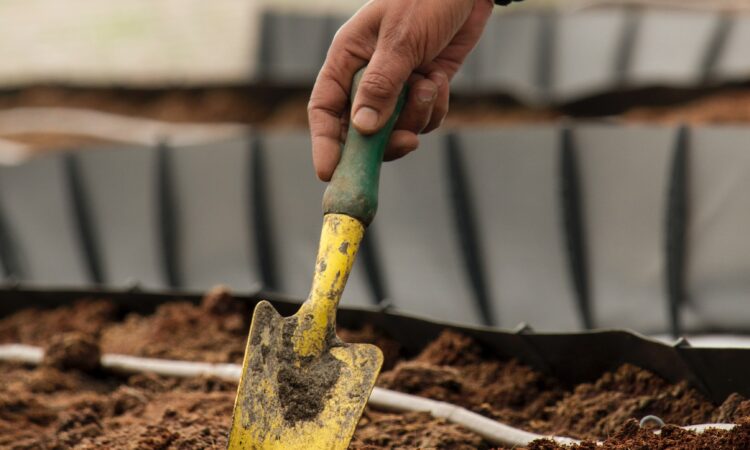Title: Investigating the role of bulking agents in compost maturity
Authors: Khadija Zahra, Muhammad Farhan, Amina Kanwal, Faiza Sharif, Muhammad Umar Hayyat, Laila Shahzad & Gul Zareen Ghafoor.
Journal: Scientific Reports
Year: 2023
DOI: https://www.nature.com/articles/s41598-023-41891-y
Featured image by Anaya Katlego
The rising global population presents numerous consequences for our environment. As the population rates gradually increase, household organic waste production presents several challenges such as storage and management where poor protocols can result in environmental contamination and damage. The type and quantity of waste depend on several factors such as lifestyle, economy and location. The solid waste consists of several categories such as kitchen or household, farm, building, and municipal waste. Of the several categories, household waste is one of the most neglected and least recycled. It has been estimated that approximately 17 percent of total global food production is wasted in households, food service and retail.
Household waste negatively impacts the sustainability of food and environmental systems, where it can have direct or indirect impacts such as pollution and greenhouse gas emissions, depending on its management. In developing countries, waste management includes combustion, incineration, or dumping into landfills. While there can be several strategies to deal with waste management, one often overlooked method includes the use of composting, where kitchen waste can be converted into environmentally friendly compost. In this case, the conversion of waste to compost provides bioavailable nutrients to the soil, which can aid its fertility and uptake by plants.
Traditional composting methods are time extensive, resulting in high carbon and nitrogen loss, resulting in 40-60% of the original compost volume and reduced nutrient content. Instead, other compositing methods which utilize bulking agents prove to be more effective as they shorten the total composting time by increasing the thermophilic stage of the compost. The composting process is generally characterized by four phases: (1) mesophilic phase, (2) thermophilic phase, (3) mesophilic phase, and (4) the finishing phase. Of the four phases, the thermophilic phase involves high temperatures that allow for metabolic activities by microorganisms typically around 45-70 ℃. Bulking agents are utilized to extend the thermophilic phase by enhancing the temperature. It also provides additional benefits for compost which include increased aerobic conditions and high surface area for microbial activity, reduced gas emissions, and improved soil nutrient retention.
Several materials can act as bulking agents such as wood chips and sawdust, however, the role of biochar and tea waste as bulking agents is not well known. A study by Zahra and colleagues investigates the impact of biochar and tea waste as bulking agents on kitchen waste composting and its effectiveness in plant growth.
The authors test several factors for bulking agents’ impact on compost, including temperature, pH, electrical conductivity, moisture content, water holding compacity and organic matter content, cellulose and lignin degradation, and micronutrients and germinations. A few key points will be described but readers are encouraged to view the article for further details. Among the many factors, organic matter is an essential component in assessing compost maturity, where the organic matter content of mature compost should range between 30–50%. Organic matter is simply the fraction of soil or compost that consists of materials (mainly carbon compounds) that are made up of living, dead and decomposing plants, animals, and microorganisms.
Zahra and colleagues evaluated the organic matter content in various categories that include a combination of kitchen waste with biochar and tea waste as demonstrated in Figure 1 below. The study shows that kitchen waste + biochar + tea waste treatment had the highest organic matter content and degradation at the start of the composting process. Organic matter content decreases because it becomes used up by microbes for energy. The kitchen waste-only treatment had the lowest degradation rate because of the absence of bulking agents which cannot support microbial growth and activity. The bulking agents can support microbial activity because it has a high water absorption capacity to support microbial activity. In addition, biochar enhances enzymatic activity by improving the C/N ratio (explained below) and helps decompose insoluble organic matter in compost. These parameters are critical because the composting process requires an optimal amount of organic matter and C/N ratio to produce an effective mature compost.

Another key indicator of compost maturity is an optimal carbon-to-nitrogen ratio (C/N) which is important for assessing the quality of the soil. The C/N ratio needs to be at the optimal ratio, where a high ratio can cause a delay in the maturation period while a lower ratio can cause rapid loss of nitrogen. The optimal ratio mentioned by the study should be between 14-18 which ensures slow mineralization of nitrogen and is vital to sustain microbial populations in compost. The study shows that the kitchen waste-only treatment is beyond the optimal C/N ratio, while the other treatments with the bulking agents (tea waste and biochar) are within the range. This indicates that the kitchen waste with the bulking agents can develop mature compost which can be used to effectively support plant growth.
Overall, in the study, the authors demonstrate that tea waste and biochar are effective bulking agents which enhance compost quality by improving organic matter, lignocellulose degradation, water retention, and plant growth. The study is significant because it demonstrates an effective and simple method to manage kitchen waste with implications to support the economy and environment.

